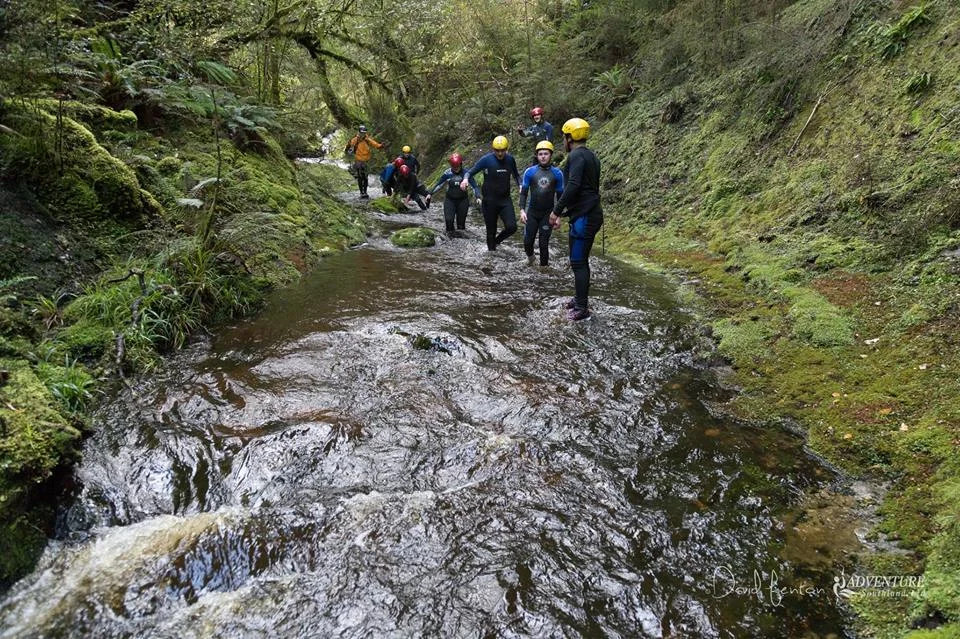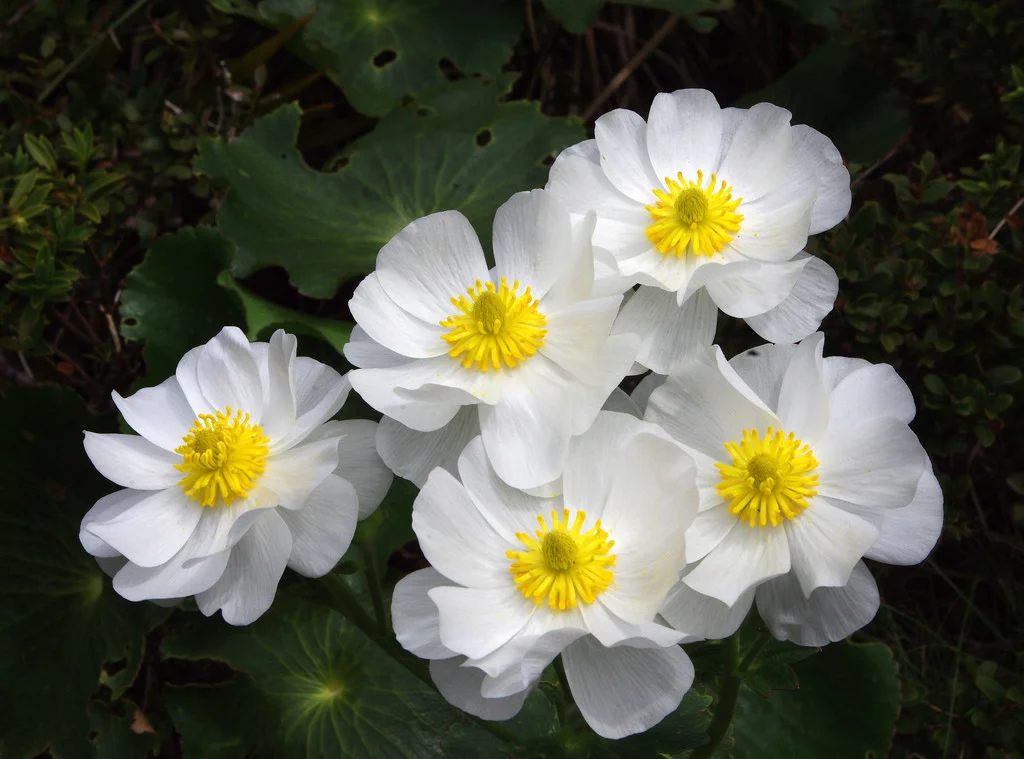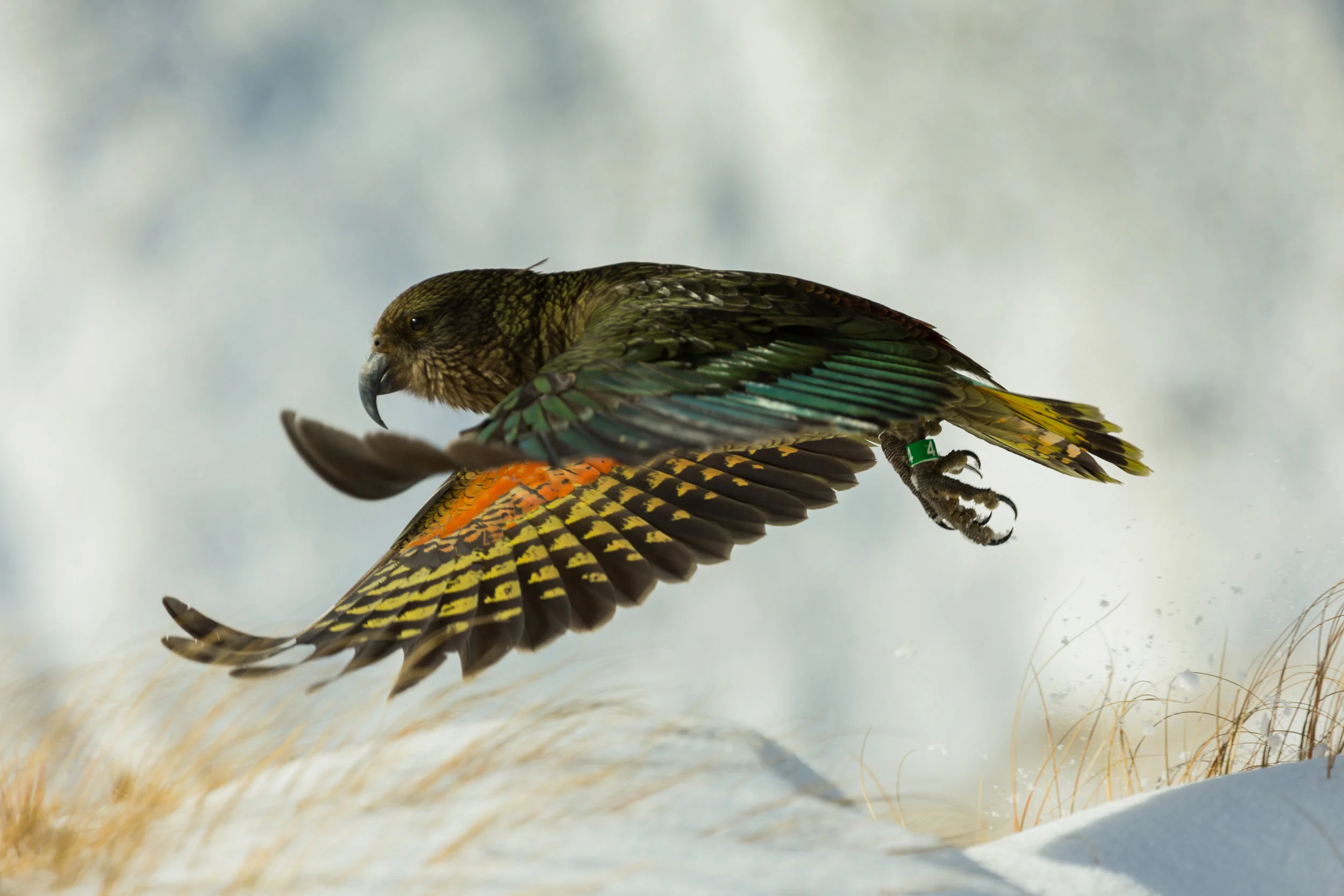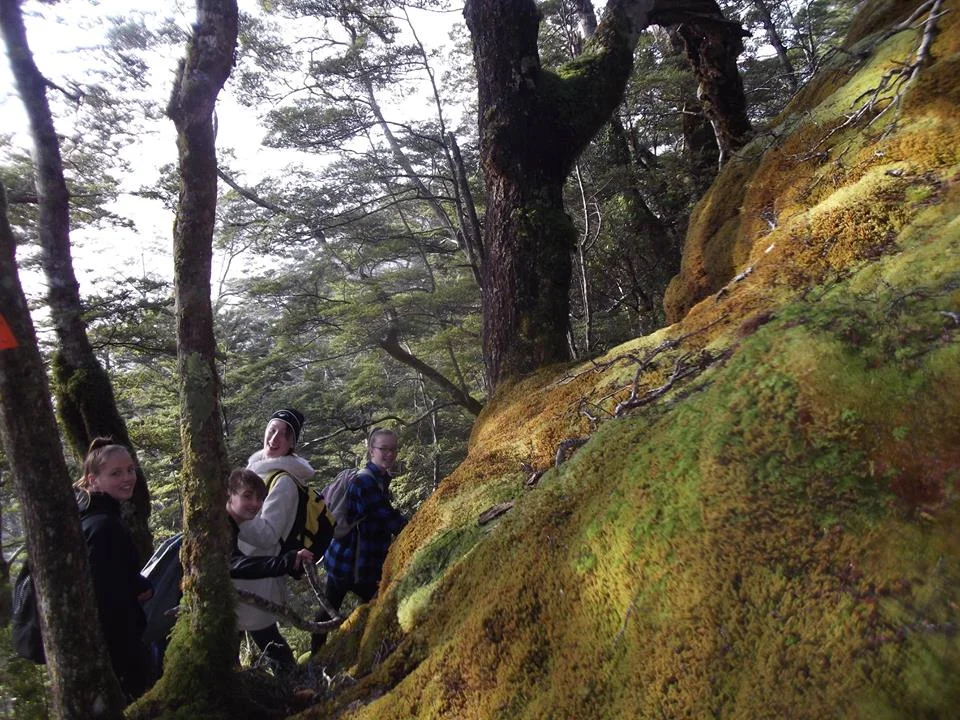Flora and Fauna
Plant life
Borland Lodge, gateway to the Fiordland National Park, makes a handy base from which to explore the botany of the region. The forest here is beech forest, with the dominant tree species mountain beech and silver beech. There are other trees as well and an abundance of shrubs and ferns.
The Borland Nature Walk is a good introduction to the plant life of the Borland area.
The Fiordland National Park entrance at Borland Lodge takes you up the Borland road to the Borland Saddle (988-m) through mountain vegetation to the treeline. A short hike up the track from the saddle carpark brings you to the tussock-covered tops with a wonderful array of mountain species -- hebes, aciphyllas, celmisias, dracophyllums and many others.
Along the Borland Road near the Borland Saddle you might see the famous Mount Cook Buttercup.
The Borland area features the mistletoes which are common on beech trees and the colourful autumn fungi. Mosses and lichens and many fern species complete a picture of unspoiled nature. The drier roadsides towards Lake Monowai are another habitat with manuka and bog-pine supporting their own communities of insects and birds.
The Borland Mire, an extensive wetland close to the Lodge, is a DOC reserve with a range of species tolerant of 'wet feet'.
Birdlife
Exploring the Borland area you can encounter over 45 different bird species. This includes waterfowl, finches, owls, cuckoos, the occasional kaka and falcon and a healthy population of smaller bush birds.
Friendly robins are common in the beech forest, and along the nature walk you might see riflemen, tomtits, fantails, brown creepers, grey warblers and parakeets. There is a small mohua (yellowhead) population in the forest, one of the few remaining in New Zealand.
A warm spring day in Borland can be quite noisy. You might pick out the notes of the bellbirds, the tuneful robin, the warble of a distant magpie, the twitter of a chaffinch and in the evening the call of the morepork. Pipits and the occasional kea inhabit the higher areas.
The Borland River and Pig Creek support trout, eels, cockabullies and a wide variety of insect life. In the summer the forest is alive with the buzz and chirp of busy insects helping to recycle the forest and small brown frogs call on wet evenings.
Keen to find out more about Southland Birds?
Join the "Birds at Borland" course based at Borland Lodge. This weekend course led by Lloyd Esler is suitable for all ages and usually runs in early October.
Course costs includes a copy of the laminated 'Birds of Southland' sheet.
Lloyd Esler
phone: 03 213 0404
email: esler@southnet.co.nz




